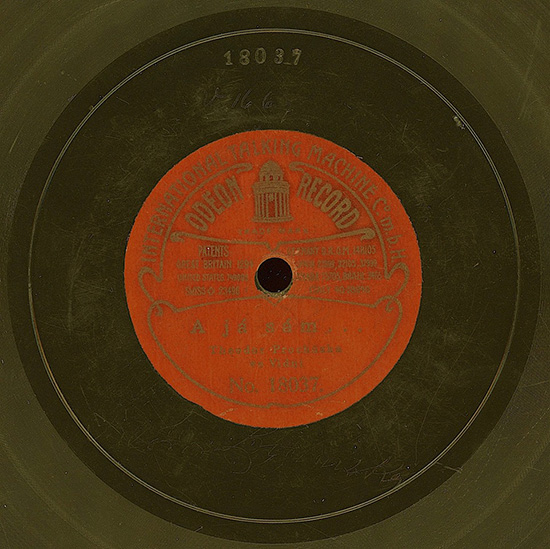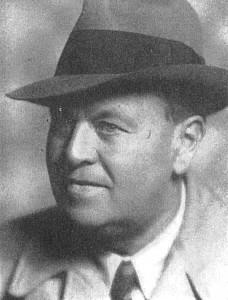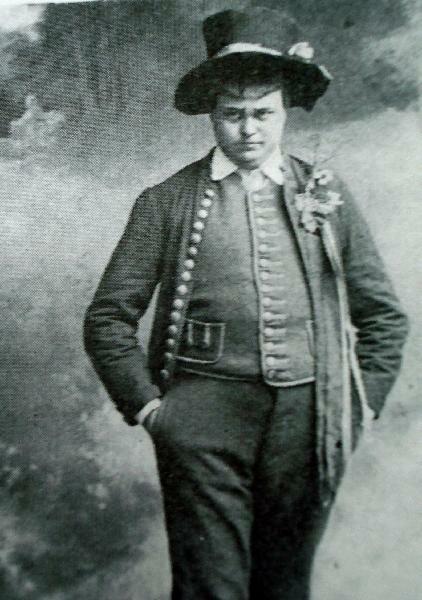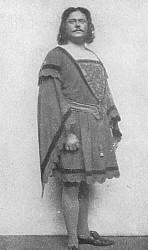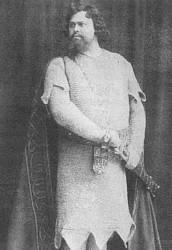His real name, which he also used on stage during the early years of his career was Bohdan Procházka, and he was the son
of a stage technician at the Prague National Theater. He studied singing with Karel Kovařovic, a famous composer,
conductor and voice teacher (and future long-term director of the National Theater). In 1899, he made his debut at the National
Theater as Lohengrin, but his voice was found too weak and too effeminate.
In 1902, he was ready for the stage. After a year or so in Plzeň and other provincial towns, he came to Brno
(1903–05), where he sang Števa in the world premiere of Její pastorkyňa (Jenůfa for Westerners)
on 21 January 1904. In 1904 and 1905, he restudied with Adolf Robinson in Vienna, and returned with a contract with the Vienna
Hofoper and its director Gustav Mahler: Schütz (as he called himself now) got some Hofoper money for the continuation of
his studies, with the prospect of singing at the Hofoper once he was considered properly trained. He sang in Olomouc, then went
back to Vienna in 1907, but Mahler was, at that very moment, in the act of resigning from his post, and Schütz was never
accepted to the Hofoper (opposite claims in Kutsch/Riemens and other sources notwithstanding); instead, he spent the next four
years at the Vienna Volksoper.
In 1911, he was hired by the Prague National Theater – and stayed for the rest of his career, until 1938. He was even
back at the National Theater from 1955 to 1958, as a voice instructor.
He was considered the foremost Czech Wagnerian: Tristan, Parsifal, Tannhäuser, Erik, Lohengrin, Stolzing. Other important
roles were Prince (Dvořák's Rusalka), Dalibor, Šťahlav (Libuše by Smetana),
Éléazar, Ctirad (Šarka by Fibich), Herodes, Kozina (Psohlavci by his teacher Kovařovic), Otello,
Manrico, Max, Laca and Dmitrij. He also sang the difficult role of Babinsky in the world premiere of Weinberger's
Švanda dudák on 27 April 1927.
Reference 1; reference 2; reference 3: Kutsch & Riemens
